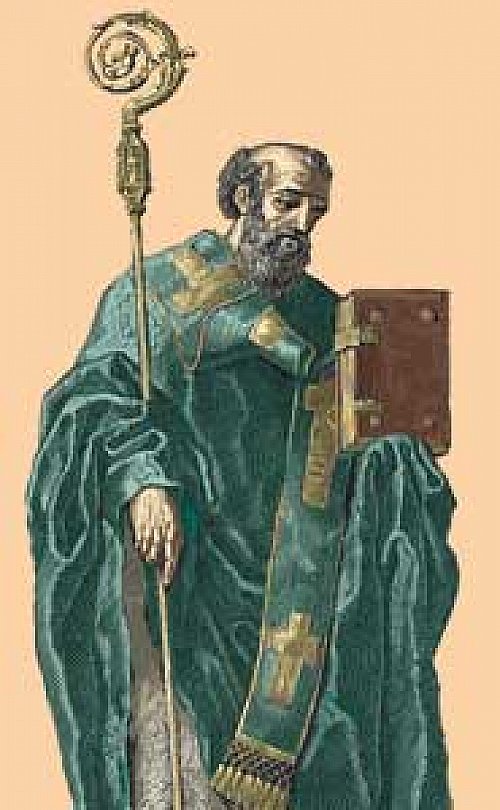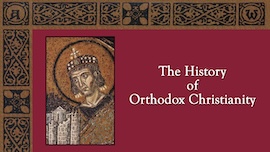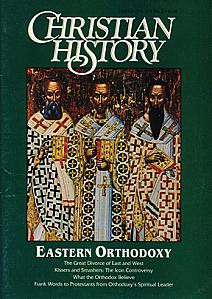Gregory of Nyssa Was One of a Famous Triad of Cappadocian Theologians

An outstanding theologian, Gregory battled Arianism.
GREGORY OF NYSSA was a fourth-century bishop and scholar known for his defense of orthodox Christianity. Historians refer to him as one of the “Cappadocian Fathers” because he was born in Cappadocia (now central Turkey). His grandmother was St. Macrina the Elder, his elder brother was St. Basil the Great (the foremost of the Cappadocian Fathers), and one of his sisters was St. Macrina the Younger.
As a youth, Gregory loved to study both theology and science, but his faith was feeble. His spiritual transformation began when his mother acquired relics of the forty martyrs of Sebaste. These soldiers had been imprisoned, tortured, whipped, and forced to stand naked on ice for refusing to sacrifice to a heathen god. Viewing their bones, Gregory realized that God had the right to demand his very life.
Gregory’s earlier years as a convert were somewhat tumultuous. He became a church reader, but then abruptly abandoned this position to teach rhetoric. He married, but soon regretted his marriage as well, bemoaning it as a weakness while considering celibacy a nobler path. Too shy to succeed as a teacher and unable to inspire others to share his love of literature, he left his wife and students to enter Basil’s monastery. For about ten years he devoted himself to study, until Basil pressured him into becoming bishop of Nyssa, a small town near Caesarea. Basil needed helpers in his fight against the Arians, who taught that Christ was a created being.
But Gregory’s appointment as bishop proved a disaster. He could not handle the church or the local Arians. His brother accused him of mismanagement and a man named Philochares charged Gregory with embezzling church funds. Soldiers arrested Gregory and marched him away to face the emperor Valens. Knowing he could not expect a fair trial before Valens, who was an Arian, Gregory escaped and went into hiding. After Valens died, his successor issued an edict restoring Gregory and other deposed bishops to their sees (a see is the “home base” of a bishop). Surprisingly, a huge crowd turned out to welcome Gregory when he went back to Nyssa.
Basil died soon after and Gregory took up Basil’s defense of the orthodox faith. He was prominent at the Council of Constantinople in 381 for defending the Trinity.
Gregory was one of the earliest theologians to attempt a systematic theology—his Catechetical Oration—and one of the first to try to make sense of why we confess one God in three persons. He argued that while Father, Son, and Holy Spirit are three in the same way that Peter, Paul, and Timothy are three, we cannot say there are three Gods.
“For the Persons of the Godhead are separated one from another neither in time, nor place, nor will, nor practice, nor operation, nor passivity, nor any of the like things such as are perceived with men, but only in that the Father is Father and not Son, and the Son is Son and not Father, and likewise the Holy Spirit is neither Father nor Son.”
The Lutheran Church honors the memory of Gregory of Nyssa on this day, 14 June.
—Dan Graves
----- ------ ------
For more about Gregory and other famous Christian leaders of the East, watch The History of Orthodox Christianity
(The History of Orthodox Christianity can be purchased at Vision Video)
For more on Eastern Christianity read Christian History #54 Eastern Orthodoxy, then and now








